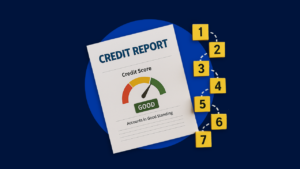The pros and cons of debt relief programs




Key takeaways
- The main advantage of debt relief programs is that they take the burden of credit negotiations off of the consumer.
- The drawbacks to debt relief programs are high fees and potential damage to your credit for missed payments.
- Debt consolidation loans and balance transfer cards can help you manage your debt and boost your credit scores, if you qualify for them.
- A credit counselor may be able to help you decide which debt relief programs are the best for you.
If you’re having trouble keeping up with debt payments, you may be stressed or fear there’s no way to get your finances back on track. One option you may have heard about is debt relief.
Debt relief offers a flexible approach to tackling your debt, including refinancing your debt with a debt consolidation loan or balance transfer card, getting the interest rate reduced or having the repayment terms on your debt revised. In some cases, a portion of the debt may even be canceled or wiped out entirely.
Understanding the pros and cons of debt relief programs can help you make a decision about which option is best for your financial goals and needs.
What is debt relief?
Debt relief is the process of reorganizing debts to make them more manageable. This can mean consolidating multiple debts into one monthly payment, settling a debt for less than you owe or working with a debt relief company or nonprofit credit counselor to create a strategic plan for repaying debt.
Multiple debt relief options are available, so it’s important to weigh the pros and cons of each to determine which method is best for you.
Hanna Horvath, Certified Financial Planner (CFP) and Red Ventures Senior Editor, explains that debt relief programs can benefit those struggling with high-interest debt. However, there are also some potential downsides.
While these strategies can offer a lifeline, they're not a get-out-of-jail-free card for your debt. Most types of debt relief involve paying fees, and may negatively impact your credit score. In some cases, you may be able to handle your debt on your own by using a balance transfer card or taking out a debt consolidation loan. The best option for you depends largely on the amount of your debt and your specific financial situation.— Hanna Hovarth, CFP
Debt relief programs: Debt settlement
A debt relief program is when a for-profit or nonprofit organization acts as an intermediary between you and your creditors. It’s usually a last-resort option if you haven’t been able to make payments for a while and don’t have other resources to repay the debt.
With for-profit debt relief companies, the primary goal is usually debt settlement, which is a process that allows you to discharge large debts for less than you owe by making a significant upfront payment.
Debt settlement pros
- You may be able to settle your debt for less than you currently owe.
- You don’t have to communicate with creditors directly if you use a debt settlement company.
- You’ll pay your debt off faster than you could if balances weren’t reduced.
- You’ll replace multiple payments with one payment to the company or nonprofit you choose.
Debt settlement cons
- Negotiations typically require you to stop making payments, which will damage your credit score.
- You may pay debt settlement company fees as high as 15 to 25 percent of the amount settled.
- The amount of forgiven debt may be considered taxable income by the IRS, so there may be tax implications.
- You may end up paying more than you originally owed, since creditors aren’t legally required to settle for less.
Debt relief programs: Debt management
Nonprofit debt relief services focus on creating a debt management plan (DMP) with your creditors.
If you work with a credit counselor on your DMP, you will make a single monthly payment to an account in your name, and the company will use this money to pay bills on your behalf. This can be a much cheaper alternative to for-profit debt relief companies.
You can also create your own DMP using debt management calculators.
Debt management pros
- You may save money on interest expenses.
- You could be out of debt faster.
- You’ll have just one DMP plan payment to make each month.
Debt management cons
- DMPs through a credit counselor may require you to stop using credit cards.
- Your credit scores could drop if you’re required to miss payments to qualify for the plan.
- Fees for DMPs from for-profit companies can be steep.
DIY debt management strategies
Common debt management strategies include the debt snowball and the debt avalanche. In both cases, you pay more than the minimum balance on one specific debt while paying only the minimum on all other debts. Once your focus debt is paid in full, you funnel that amount to the next debt on your list.
With the debt snowball, you focus on the debt with the lowest balance first. With the debt avalanche, you focus on the debt with the highest interest rate first. Tackling your debt yourself could save you money on fees that typically come with other debt relief options. The catch is discipline. You are responsible for keeping track of payments.
DIY debt management pros
- No fees since you handle the plan yourself.
- You’re in control of the plan and change it as needed.
- Could save you money and make you feel financially empowered.
DIY debt management cons
- May be difficult to track if you have multiple creditors.
- You’re responsible for all communications with each credit company.
- Easier to bail on since you don’t have a third party to keep you accountable.
Debt consolidation
Debt consolidation is combining two or more existing debts into one new debt. It’s another DIY option, because you choose how you consolidate your debt without the help of a third party. Some of the most common options are debt consolidation loans and balance transfer cards.
With a debt consolidation loan, you take out a new loan to repay all the existing debts and make payments on the new loan. Personal loans are effective for debt consolidation because they offer a definite payoff date with a fixed-rate payment and average APRs typically much lower than credit cards. They can also boost your credit score by reducing your credit utilization ratio if you pay off revolving credit card balances.
A balance transfer credit card typically offers a 0 percent introductory rate to give you a temporary break from incurring interest. You’d pay off your debts with that card and then pay off the card. If you can pay it off before the promotional period ends, you’ll save a lot of money in interest. However, it is a credit card, so transferring the balance doesn’t help your credit utilization ratio in the same way that a debt consolidation loan does.
These options may be a good idea compared to other choices — provided you can keep up with the payments.
Debt consolidation pros
- You’ll simplify your monthly payments.
- You may save money on interest, pay down debt faster or both.
- Debt consolidation loans can offer lower fixed interest rates, a fixed monthly payment plan and a set repayment schedule.
- A balance transfer credit card can get you 0 percent APR for up to 21 months.
- Consolidating credit card debt with a personal loan may increase your credit score.
Debt consolidation cons
- You need good or excellent credit to qualify for loans with the best rates and terms.
- You may owe fees balance transfer fees of between 3 and 5 percent if you use a balance transfer card.
- Personal loan origination fee can be as high as 10 percent of the amount borrowed.
- You’re stuck with another credit card balance if you don’t pay the balance off before the 0 percent APR period (usually between 12 and 18 months) expires.
- Balance transfer cards could hurt your credit score if you can’t pay the balance off within the low-rate period.
Credit counseling
Credit counseling involves seeking help from financial experts to manage your finances. You’ll be assigned a counselor to examine your current debts and income, and they will create a financial plan based on your monthly budget to help you repay your debts. They may even be able to negotiate with your creditors to temporarily reduce the interest rate or waive fees on your account.
Credit counseling agencies can be for-profit or nonprofit. Nonprofit counseling agencies typically charge lower fees than for-profit agencies, with some offering their services for free. For-profit companies may charge higher rates and be incentivized to sell you their services.
Some agencies also offer long-term financial health assistance and immediate debt management services, such as free training and workshops on improving your relationship with money.
Credit counseling pros
- Nonprofits offer low-cost or free services.
- Receive financial advice tailored to your specific debts and income.
- Gain access to resources that promote immediate and long-term financial health.
Credit counseling cons
- Not all credit counseling agencies are reputable, so you’ll have to do your research.
- For-profit counseling comes with higher fees.
- Your credit score could drop if the debt is negotiated for less than you owe.
Bankruptcy
Bankruptcy is a long, expensive process with long-term negative impacts on your credit score. However, bankruptcy can give you a break from creditors and may result in discharged debt, if you’re experiencing sustained financial hardship. That may include the death or long-term illness of a spouse, a job layoff or a medical emergency.
There are two main types of bankruptcy: Chapter 7 and Chapter 13. Both types help you discharge certain debts and get a fresh start.
Chapter 7 bankruptcy requires you to liquidate most property to pay off your creditors. That means you could lose your home or vehicles if they are secured by debt included in the bankruptcy. The remaining qualified debt is discharged. Chapter 13 bankruptcy is basically a court-ordered debt management plan. It puts you on a three- to five-year payment plan, which may have lower interest rates or smaller payments compared to your current debt.
Bankruptcy pros
- Certain debt balances may be reduced or discharged completely.
- The process stops calls from creditors and debt collectors.
- The process is often faster than something like debt settlement, which means you can rebuild credit sooner.
- You may be able to keep your home or a car in certain circumstances.
Bankruptcy cons
- Chapter 7 stays on your credit report for up to 10 years, and Chapter 13 stays for up to seven years following the filing date.
- Both types cause significant credit score damage and may make qualifying for new unsecured credit difficult.
- Secured loans and federal student loans typically can’t be discharged, which means you still owe the debt regardless of the bankruptcy filing.
When should you consider a debt relief program?
Debt relief is worth considering if you’re living paycheck to paycheck, having trouble managing several different credit accounts or are going through difficult financial times. Seeing the benefits of each debt relief option side-by-side may help you determine which one is best for you.
| Type of debt relief | Best if you |
| Debt settlement & debt management plans | Don’t have the resources to continue making payments and need third party help |
| DIY debt management | Have good budgeting skills and stable income to pay debt down and track the progress themselves |
| Debt consolidation loans | Qualify for a rate lower than the debt you’re paying off, and can afford a fixed-monthly payment to pay your debt off within one to seven years |
| Balance transfer card | Qualify for the 0 percent promotional period and pay the balance off before it expires |
| Credit counseling | Need third party help and want additional financial advice to manage your debts better. |
| Bankruptcy | Can’t qualify for any other options and need legal protections and relief that bankruptcy offers you from creditor collection tactics. |
Bottom line
Being saddled with debt can be overwhelming. Debt relief offers a reprieve from stress, but it’s important to understand each option. If you find yourself needing debt relief on a regular basis, it may be time to take a hard look at your budget, spending habits, or ways you can increase your income.
Whichever type of debt relief you choose, research whether you qualify and what kind of effect it could have on your credit score and financial future.
Why we ask for feedback Your feedback helps us improve our content and services. It takes less than a minute to complete.
Your responses are anonymous and will only be used for improving our website.




